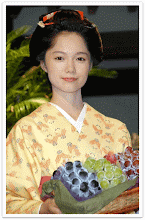On October 27th 2016, Japan's Imperial Household Agency reported that Prince Mikasa had passed away. He was the oldest living member of the Imperial Family. Born in December 1915, he was the son of Emperor Taisho and the youngest brother of Emperor Hirohito (Showa) and lived through the reign of three Emperors (Taisho-Showa-Heisei). The late Prince Mikasa served as an Officer in the Japanese Imperial Army and fought as a Captain under the name "Wakasugi" in the Second Sino-Japan War. He is noted for being very outspoken critic of Japanese wartime atrocities in China. In a 1994 interview he said he was shocked by the use of live Chinese prisoners for bayonet practice. What impact his protest had is not known.
In 1940, he was shown films of using germ warfare in China that outraged him enough to force his brother the Showa Emperor top watch it. After the war he opposed After the war the Prince spoke before the Privy Council strongly urging the Showa Emperor to abdicate and take responsibility for the war. While the Prince is still seen as a controversial figure in China, one must give him credit for speaking up to what Japan's forces in China had done. While much of Prince Mikasa's wartime history is disputed in China, he became a figure for peace in the post war years. Men who have seen the horrors of war tend to do this and the Prince was no exception. He would go on to pursue academia in Tokyo University and is noted for his Middle Eastern Studies. On 2 December 2015, Prince Mikasa became the first member of the imperial family to live to 100. On his 100th birthday, he was quoted as saying: "Nothing will change just because I turn 100 years old. I'd like to spend my days pleasantly and peacefully while praying for the happiness of people around the world and thanking my wife, Yuriko, who has been supporting me for more than 70 years." He spent his final moments with his wife Princess Yuriko Mikasa (seen in photo below). It is said he outlived all of his siblings and all three of his sons.
We at American Mishima wish the Prince peace and farewell.





































